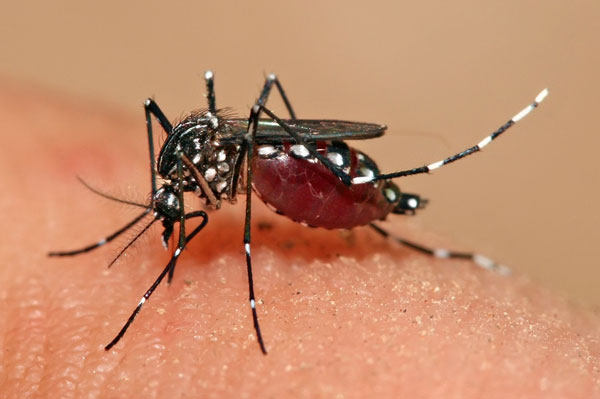- National Library Week in Los Fresnos
- Lady Falcons are Class 6A Champions
- New Beauty Clinic Opens Up in Los Fresnos
- “Houston’s Most Notable” —Los Fresnos Raised
- Earth Day 2024 coming April 6th in Los Fresnos
- Another Successful Golf Tournament for the Leo Aguilar Foundation
- Back to The Moon Again
- March 2024 Your Health Matters
- Lady Falcons in Tournament Play
- Easter Fun at Big Red’s Ranch
Texas Health Officials Warn Zika Virus Will Arrive Soon
- Updated: May 27, 2016
by Mark Richardson
AUSTIN, Texas – The Zika virus is on its way to Texas this summer, and officials say it could have a devastating effect on impoverished communities in coastal and border cities.
Public health officials told state lawmakers this week that Zika cases contracted through the aedes aegypti mosquito would likely start showing up by June or July.
Dr. Peter Hotez, dean of the School of Tropical Medicine at Baylor College of Medicine, says if a pregnant woman contracts the virus, it can block the development of her baby’s brain.
“This is what I’ve been calling the ‘virus from hell,'” he states. “It’s really every parent’s nightmare. It crosses over to their placentas and ultimately halts the development of their baby’s brain. I can’t think of a more nightmarish scenario.”

Texas public health officials say the aedes aegypti mosquito is the primary carrier of the Zika virus, which could reach Texas as soon as June or July. Photo: Wikimedia Commons
Health officials say there already have been 35 confirmed cases of Zika virus in Texas, but in almost all of the cases, people who contracted the disease had traveled to Central and South America.
Health officials say the disease will spread much faster once it is transmitted through the mosquito population, although it also can be spread through sexual contact.
Dr. John Hellerstedt, commissioner of the Department of State Health Services, says controlling mosquitos, particularly the aedes aegypti species, is the best way to slow a Zika outbreak.
He says close-up spraying of standing water, particularly inside used tires, is the best way to eliminate breeding grounds. Hellerstedt adds that the mosquitoes that carry Zika are particularly fond of humans.
“The recipe for Zika is aedes aegypti mosquito plus people, and the aedes aegypti mosquito is especially fond of living around people,” he points out. “In fact, human beings pretty much are its only source of blood meal.”
Hellerstedt advises people in mosquito-prone areas to regularly use mosquito repellent, wear long sleeves and long pants and stay indoors as much as possible.
Hellerstedt recommended to lawmakers that the state begin a mosquito-control program as soon as possible.





